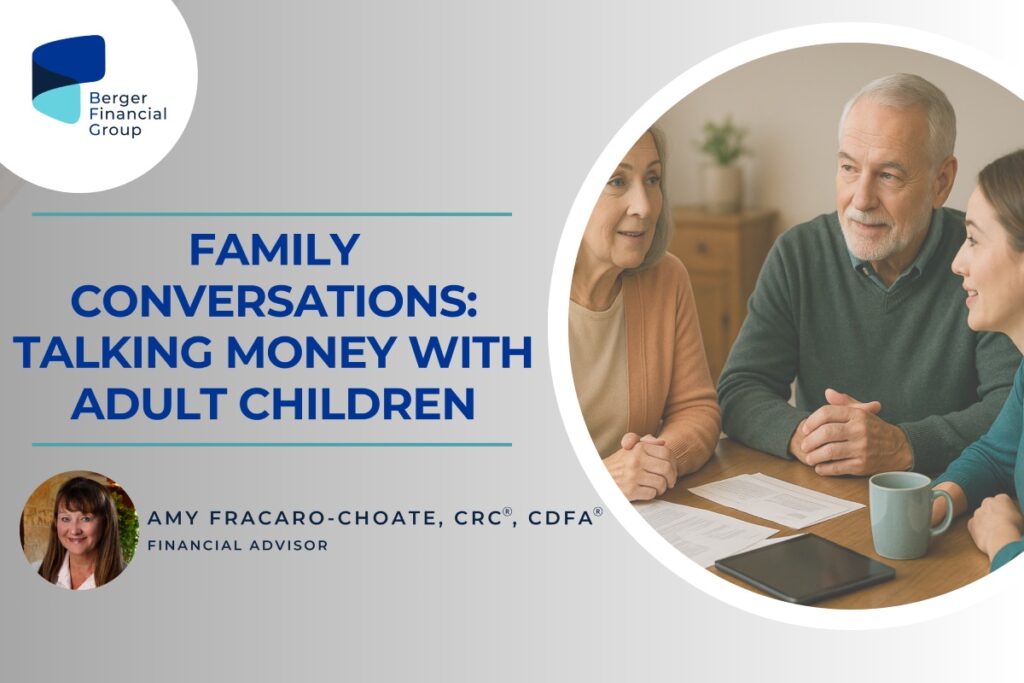How to Prepare Your Kids for an Inheritance or Help Them Build Healthy Financial Habits
Talking about money with your adult children can feel a little uncomfortable, but it’s also one of the most important conversations you can have. Whether you’re hoping to prepare them for an eventual inheritance or simply want to help them develop smart financial habits, open and thoughtful conversations can lead to lasting benefits.
Here are some friendly, practical ways to approach the topic:
1. Start the Conversation Early
It’s helpful to begin financial conversations before they become urgent. Whether your kids are just starting out or are already well into adulthood, early dialogue creates a foundation of trust and transparency. If you’re planning to leave an inheritance, setting expectations now can help avoid surprises or confusion later.
2. Focus on Education, Not Just the Numbers
Your life experience is incredibly valuable – share it! Talk about budgeting, saving, investing, and what you’ve learned along the way. Encouraging financial literacy gives your kids the tools to make informed choices on their own. If they’re interested, you might even suggest they speak with a financial advisor for extra guidance.
3. Be Clear About Your Intentions
If you plan to pass down wealth or assets, be clear about your goals and values. You don’t need to share every detail, but offering some context and clarity helps your kids understand the bigger picture. This can also help reduce potential tension or confusion among siblings.
4. Make Sure Your Plans Are in Order
Take time to review and update your estate planning documents (wills, trusts, powers of attorney, etc). If your children will be involved in executing your wishes someday, let them know what to expect and where key information is stored.
5. Encourage Financial Independence
It’s natural to want to support your children, but promoting independence is a gift that lasts. Help them build confidence in managing their own money, and offer guidance rather than solutions when possible. It’s a balance and a powerful one.
6. Acknowledge the Tough Stuff
Money can sometimes be a source of conflict, especially in families. If you foresee potential challenges, like sibling disagreements or differing values, talk about them early and honestly. These conversations, while sometimes uncomfortable, can strengthen relationships in the long run.
7. Lead by Example
Actions speak louder than words. Whether it’s saving consistently, giving generously, or spending thoughtfully, the way you manage money will influence your children more than any lecture ever could.
8. Respect Their Path
Everyone approaches money differently. Even if your children make choices you wouldn’t, it’s important to respect their autonomy. Offer advice when asked, but give them space to learn and grow on their own terms.
9. Keep the Dialogue Going
Money isn’t a one-time topic. As life changes with new jobs, marriages, children, or health concerns, financial conversations should evolve too. Checking in regularly keeps the dialogue natural and low-pressure.
10. Don’t Be Afraid to Ask for Help
If you’re unsure how to start or navigate these conversations, a trusted financial advisor or estate planner can help. Having a third party at the table often makes tough conversations smoother and more objective.
Final Thoughts
Talking money with your adult children doesn’t have to be uncomfortable. In fact, it can be one of the most valuable gifts you give them, not just in terms of dollars, but in the wisdom, clarity, and confidence you pass along. Whether you’re preparing to share wealth or simply want to support their financial growth, these conversations lay the foundation for a stronger future for them, and for your entire family.
Want help preparing for a conversation like this? Let’s talk! We’re here to support you and your family every step of the way.




